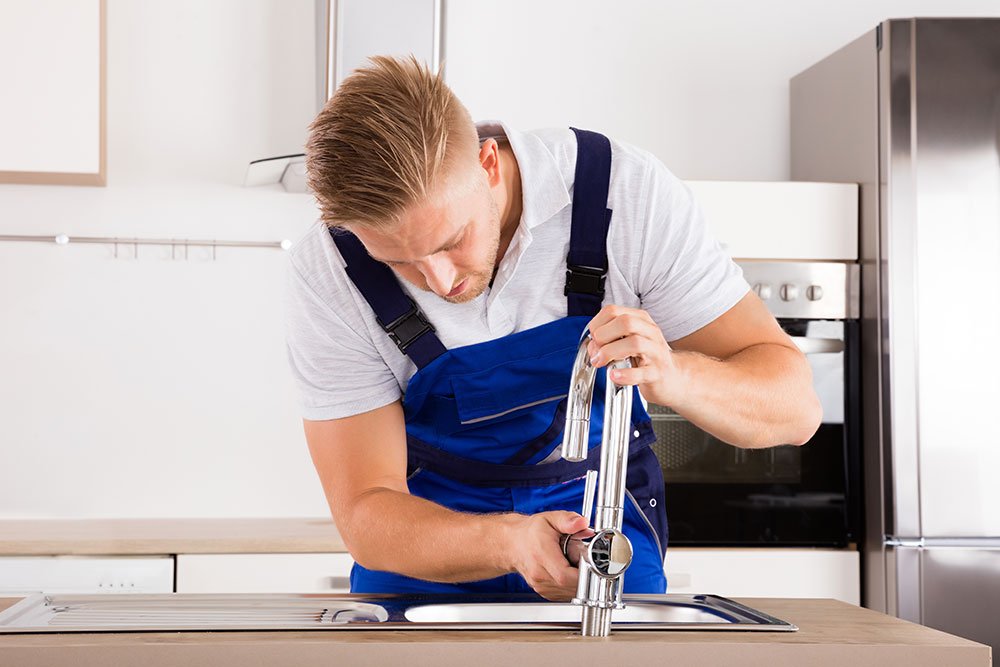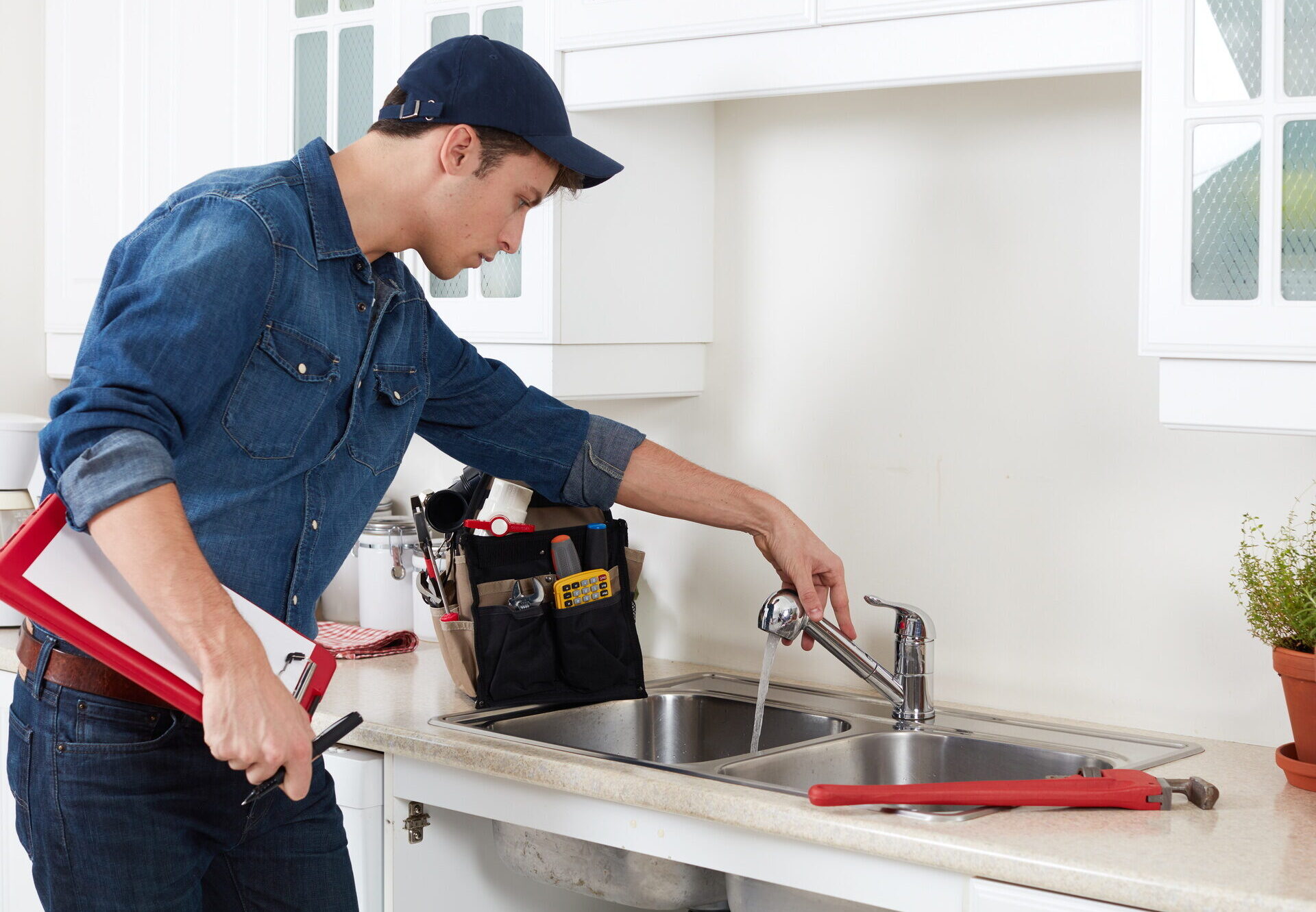How to Get an Emergency Plumber?
- Home
- How to Get an Emergency Plumber?
Recent Posts
- Main Water Line Leak: Symptoms, Detection & Repair Guide
- Repairs for Water Leaks With Pressure: 6 Fast & Reliable Fixes
- How to Fix a Loose Faucet Handle in 3 Easy Steps (DIY Guide)
- Kitchen Sink Leaking Underneath? Here’s How to Fix It Fast
- Understanding Texas Water Quality and Hardness Levels By Cities and Zip Code
Dinomite Services
In a plumbing crisis, spotting key problems is crucial. Look for burst pipes, major leaks, sewage backups, or gas leaks. Signs like sudden loss of water pressure, foul smells, or unusual noises can indicate trouble. Immediate action is vital to prevent further damage or health risks. Not all plumbing issues are emergencies. Assess based on severity and potential damage. A small leak might not need immediate attention, but a burst pipe requires urgent action.
Check the impact on safety, structural integrity, and water damage to prioritize effectively. Familiarize yourself with likely emergencies. These can include overflowing toilets, clogged drains, water heater malfunctions, and frozen pipes during colder months. Knowing common issues helps prepare for quick responses and preventive measures. This post will help you understand what constitutes a plumbing emergency, how to recognize one, and how to get an emergency plumber.

Preparing for Plumbing Emergencies
Essential Tools for Quick Fixes
In a plumbing emergency, having the right tools can be a lifesaver. Equip yourself with basics like a plunger, pipe wrench, duct tape, and a plumbing snake. These essentials cover common issues like clogs, leaks, or minor pipe adjustments. Additionally, keep a bucket, towels, and gloves handy for cleanup and safety.
Knowing Your Home’s Plumbing System
Understanding your plumbing system is key. Locate your main shut-off valve—usually near the water meter or where the main line enters the house. Identify fixture shut-offs too. Know which valves control water flow to sinks, toilets, and appliances. This knowledge is crucial during emergencies to stop water flow quickly.
Creating an Emergency Plan
Plan for plumbing crisis. Compile emergency contact numbers for plumbers, insurance, and utility companies. Map out your home’s plumbing system, marking shut-off valves. Discuss the plan with family members, ensuring everyone knows what to do in case of a plumbing crisis. Preparation is your best defense against unexpected emergencies.
Locating Reliable Emergency Plumbing Services
Researching Local Services
When seeking emergency plumbing services, start by researching local options. Utilize online directories, search engines, or community forums to compile a list of available plumbing services in your area.
Look for those specializing in emergency responses, noting their proximity and availability around the clock.
Looking for an affordable yet experienced emergency plumber in Texas?
Contact Dinomite Services as we serve Springtown, Boyd, Azle, Weatherford, and Decatur, TX.
Checking Credentials and Reviews
Once you’ve identified potential plumbers, prioritize checking their credentials. Ensure they hold proper licenses, certifications, and insurance, guaranteeing professional standards. Look into customer reviews and testimonials on various platforms to estimate their reliability, expertise, and responsiveness in handling emergencies.
Seeking Recommendations
Seek recommendations from friends, family, or neighbors who have previously dealt with plumbing emergencies. Personal referrals often provide invaluable insights into a plumber’s reliability, efficiency, and customer service, aiding in making a more informed decision when selecting a plumbing service provider.
Contacting an Emergency Plumber
Making the Right Call
When facing a plumbing crisis, dialing the right emergency plumber can be vital. Start by verifying their availability around the clock. Consider services with a strong track record in handling urgent situations promptly and efficiently. Look for accreditation or affiliations with professional bodies to ensure reliability.
Providing Crucial Information
When you make contact, provide essential details: describe the issue briefly but accurately. Include your location, specifics of the problem, and any immediate actions taken. Clear information helps the plumber prepare enough, potentially reducing response times and ensuring they arrive equipped to address the issue quickly.
Clarifying Response Times and Costs
Before finalizing the call, inquire about response times and pricing structures. Understanding their service window and potential costs upfront helps manage expectations. Clear communication about call-out fees, hourly rates, and possible additional charges for parts or overtime can prevent surprises later on.

Handling Immediate Plumbing Emergencies
Temporary Solutions Before Help Arrives
When faced with a sudden plumbing issue, there are temporary fixes you can employ. Shutting off the water supply to the affected area can prevent further damage. For minor leaks, using a pipe clamp or sealing tape could buy you time until a professional arrives.
Safety Measures to Avoid Further Damage
Prioritize safety in emergencies. Turn off electricity in affected areas to prevent electrical hazards. Use rubber gloves and boots when handling standing water to avoid potential electrocution risks. Also, be cautious of slippery surfaces and mold growth due to moisture accumulation.
Knowing When to Evacuate
Certain plumbing emergencies may pose severe risks to your safety or property. If the situation escalates beyond control, such as a major flood or gas leak, evacuate immediately. Call emergency services and wait at a safe distance until professional help arrives.
Remember, the first step in handling any emergency is knowing who to call – an experienced and reliable emergency plumber.
Post-Emergency Follow-Up
Assessing Repairs and Future Prevention
Once the immediate crisis is resolved, conduct a complete assessment of the damage. Identify necessary repairs and take note of potential vulnerabilities. This step lays the foundation for preventing future emergencies.
Understanding Service Guarantees
Ensure you understand the service guarantees provided by your emergency plumber. Clarify the scope and duration of their warranty. This knowledge is crucial for any potential follow-up issues and helps you make informed decisions.
Leaving Feedback for Service Providers
Share your experience by leaving constructive feedback for your service provider. Your insights can guide others in choosing reliable plumbers and foster a community committed to resolving emergencies promptly. Honest feedback is a powerful tool for both consumers and service professionals.
DIY Maintenance to Prevent Future Emergencies
Regular Inspection Tips
Regular checks of your plumbing system can ward off potential disasters. Start by examining exposed pipes for leaks or corrosion. Inspect faucets, showers, and toilets for any signs of dripping or unusual noises. Check under sinks and around appliances for moisture or water stains. Keep an eye on water pressure fluctuations as they might signal an issue.
Simple Maintenance Tasks
Performing simple maintenance tasks can significantly prolong the life of your plumbing. Routinely clean drains using a mixture of hot water, vinegar, and baking soda to prevent clogs. Replace worn-out washers and seals in faucets and toilets to prevent leaks. Insulate exposed pipes during colder months to prevent freezing. Regularly flush your water heater to remove sediment buildup.
Engaging Preventive Measures
Taking proactive steps can be the key to preventing plumbing emergencies. Consider upgrading to low-flow fixtures and appliances to conserve water and reduce strain on your plumbing system. Be mindful of what goes down your drains—avoid disposing of grease, oils, and non-flushable items. Educate household members about responsible water usage to prevent unnecessary strain on pipes. Installing a water softener can reduce mineral buildup in pipes, prolonging their lifespan. Consider scheduling annual professional inspections to catch any potential issues early. These preventive measures can significantly reduce the likelihood of future plumbing emergencies.
Conclusion
It’s crucial to remember that being prepared for plumbing emergencies is key. By understanding the steps involved, you equip yourself to navigate these situations confidently. Recognizing the need for an emergency plumber and having essential tools on hand can make all the difference. Preparedness isn’t just about knowing what to do; it’s about feeling empowered to take action when needed. This knowledge builds confidence, ensuring you can handle plumbing issues quickly and efficiently, safeguarding your home from further damage.

